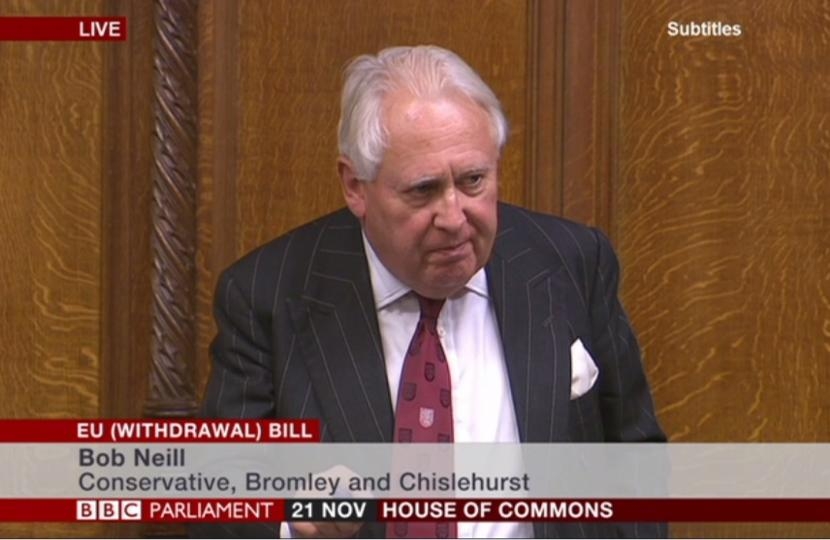
On Tuesday the EU (Withdrawal) Bill returned to the House for its third day (of eight) in Committee. A number of the amendments I have added my name to were debated, and as I said in my update last week, I am keen to keep residents informed of my work as the Bill progresses and explain my stance on particular aspects of the legislation as they arise.
The majority of the debate focussed on a series of very technical legal points, in particular how we best preserve the rights enjoyed by UK citizens’ through the Charter of Fundamental Rights once we leave the EU, as well as the extent to which EU case law should be considered post-Brexit. This is a question members of the senior judiciary have raised serious concerns about - including the former President of the Supreme Court, Lord Neuberger – but without previous legal experience, it can be a difficult concept to get your head around.
In simple terms, it is this: our law is the same as EU law at the date we leave. But law is not a static thing; it evolves and develops over time. There are good reasons why, going forward, we are likely to want to keep our laws equivalent to the EU in areas like product standards, financial regulation and data protection, allowing us to trade our goods into the EU27 and continue to participate in key areas like justice and security cooperation. But how do we do that effectively if we cut ourselves off entirely from the European Court of Justice (ECJ), which oversees that law, and how much weight should be given to the judgements handed down by the ECJ?
The Bill gives UK judges a large amount of discretion on this matter, putting the onus on them to decide. The problem with that approach is that our laws must be clear and consistent – that is a fundamental principle of the rule of law. Therefore, unless we spell out in statute exactly what is expected of our judiciary, we risk legal incoherence.
I am glad that the Solicitor General, Robert Buckland, has agreed to meet with colleagues to iron out these internal contradictions in the Bill, and I look forward to working with the Government to ensure that the wording of the legislation meets our mutual aims.
You can read the transcript of the speech I made on Tuesday here:
I also want to take the opportunity to address the concerns a number of residents have expressed to me about animal sentience, particularly with regards to New Clause 30 of the Bill, which was debated last week. It appears that there has been a great deal of misunderstanding about what MPs were actually voting on, not least in the press. In fact, The Independent has since retracted its story on this matter. By way of an explanation, let me explain: the Conservative Party did not vote that animals cannot feel pain.
On the contrary, the Government has set out very clearly that we will strengthen our animal welfare rules through our departure of the European Union. Indeed, we are making CCTV mandatory in all slaughterhouses (a requirement that goes above and beyond any EU rule); the Government will consult on new legislation to increase sentences for animal cruelty to up to 5 years (more than almost any other European nation); Ministers have set out plans to ban the sale of ivory to help combat elephant poaching; and the forthcoming ban on microbeads, which do real harm to marine life, has been welcomed by Greenpeace as ‘the strongest in the world.’
This vote then was on procedure, not issue, and was based on New Clause 30 being a faulty amendment. Animal sentience is already recognised in UK law, and adding the current EU instrument - Article 13 TFEU - to the Bill would make no material difference to the welfare of animals (just look at bull fighting, a practice still popular in a number of EU member states). In fact, duplicating the law again would only cause legal confusion.
The Environment Secretary has said that the Government will announce further plans to strengthen animal welfare next year. Please be assured that this is something I will continue to scrutinise closely over the coming months, as I will all other aspects of the Brexit process.



